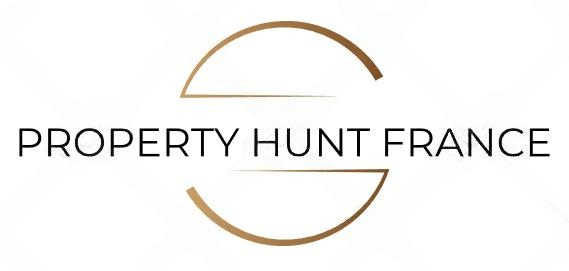Is It Less Expensive to Live in France Than in the U.S.?
Whether you're dreaming of sipping wine in Provence or strolling through Parisian markets, one question many Americans ask before making the leap is: "Is living in France actually cheaper than the U.S.?"
The answer? It depends—but in many ways, yes.
Let’s break it down.
Housing: France Wins
Housing is one of the largest monthly expenses—and in France, it’s often significantly cheaper.
In rural France or smaller towns (like Toulouse, Montpellier, or Rennes), you can find charming homes for a fraction of U.S. prices.
Even in mid-sized cities, rentals and home prices are usually 30–50% lower than comparable places in the U.S.
Paris is expensive—but still often less than comparable cities like New York, San Francisco, or Los Angeles.
Example:
1-bedroom apartment in Lyon : ~1,100€ (~$1275) / month vs: 1-bedroom apartment in Denver : ~$1,600/ month
1-bedroom apartment in Paris : ~1,300€ (~$1507) / month vs: 1-bedroom apartment in Manhattan NY : ~$3,400/ month
Groceries & Food: Fresh and Affordable
France is famous for food—and surprisingly, it’s affordable. France also has much higher regulatory standards - even an international chain restaurant (like McDonald’s, for example) will taste noticeably better in France than it does in the U.S.
Farmers markets and local butchers offer fresh, high-quality food at low prices.
Cheese, wine, bread, and produce are far cheaper and better quality than in most of the U.S. In contrast to the “Two Buck Chucks” available in the US which are sweetened, poor quality, and/or processed, 2 euros will get you a very drinkable bottle in France. If you want a high quality bottle from a prestigious area in France, you’re looking at between 15€ - 30€ as compared to over $100 for a high-end Napa wine.
Eating out is often more reasonable, especially with set lunch menus (menu du jour for 12€ - 18€).
Pro tip: Avoid imported brands and stick to French or European good - they’re cheaper and often better quality.
Healthcare: Huge Savings
France has one of the best and most affordable healthcare systems in the world.
Routine visits: ~25€ (often reimbursed up to 70% by public insurance).
Prescription drugs: Usually heavily subsidized.
No fear of surprise bills or medical bankruptcies.
Even private health insurance (mutuelle) is inexpensive by U.S. standards—usually under €100/month.
Compare that to the average $500+ monthly premiums in the U.S. with high deductibles, and the difference is dramatic. Even when deductibles are applicable in France, they are often capped at 50€/ year max.
Education & Childcare: Much Cheaper
Public schools, including preschool from age 3, are free in France. University is also highly subsidized:
French university tuition: ~200€ - 500€/ year (yes, really!)
U.S. university: $10,000 - $60,000/ year
Childcare is also affordable, especially if you qualify for CAF (family assistance). Many parents in France spend less than 400€/ month on full-time care. Some spend none at all after receiving tax credits and financial assitance from the government, which can vary between 356€ - 984€ / month per child.
American parents typically spend between $600 - $2500/ month per child depending on location.
Transportation: France Can Be Cheaper (If You Go Car-Free)
In cities and towns, public transit is reliable and inexpensive (1€ - 2€ per ride, or monthly passes for 30€ - 70€). Montpellier recently made its absolutely amazing tram system free for all residents.
High-speed trains (TGV) make intercity travel fast and practical—often cheaper than flying or long drives in the U.S. Driving from Avignon to Paris would take between 8 - 10 hours and would cost around 150€ one-way. Taking the TGV would take between 2h40 and 3h10 depending on the number of stops, and would cost roughly 25€ - 130€, depending if you plan in advance or buy your ticket same-day.
If you live rurally and need a car, gas is about twice as expensive in France than in the U.S.
But, insurance is far cheaper - between $650 - $800/ year in the US for minimum liability, and $2,150 for full coverage. In France you’d be looking at 200€ - 400€/ year for minimum coverage, and 400€ - 800€/ year for full coverage.
Taxes: Higher, But You Get More
France has higher income taxes and a 20% VAT (sales tax). But you get real services in return:
Universal healthcare
Subsidized childcare
Tuition-free education
Public transit
Parental leave and job protections
In the U.S., you may pay less in taxes but spend far more out-of-pocket. Plus, a huge bonus in France is that the sales tax is already added to the price that you see. If something costs 13.99€ in France, that’s the final price. It won’t cost 14.83€ after a 6% sales tax is added, it will really just cost 13.99€! And, tipping culture doesn’t exist here. You can do it if you really want to, but there’s no pressure or obligation to do so after a meal in a restaurant. So, that’s another hidden cost you don’t have to think about while living here.
Clothing, Electronics, & Other Goods: U.S. Is Cheaper
This is where the U.S. has the edge:
Clothes, phones, appliances, and consumer goods tend to be cheaper in the U.S. thanks to lower VAT and bigger retailers.
Amazon is available in France, but prices are usually higher than in the U.S.
Final Verdict: France is Often More Affordable Overall
If you’re willing to adapt to the lifestyle—live in a mid-sized city public transport (or a small walkable village), use public healthcare, and embrace the French way of life—you’ll likely spend less overall in France than in the U.S.
Reach out to us at Property Hunt France if you’re relocating to France and would like the help of an English-speaking buyer’s agent!


